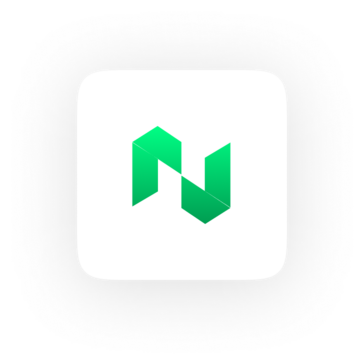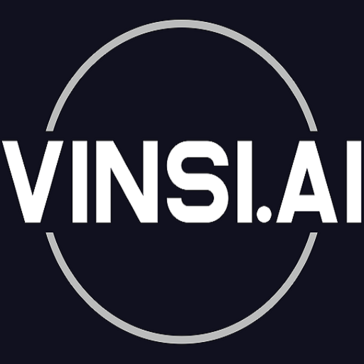- Synthflow is a software that provides AI voice agents for automating calls and creating personalized experiences, ideal for tasks such as scheduling meetings, lead validation, and handling bookings.
- Reviewers frequently mention the natural-sounding voice agents, ease of integration with other platforms, user-friendly interface, and the time-saving aspect of the software as key benefits.
- Reviewers noted issues with the cost being too high for single business owners, a lack of customization options, a need for more intuitive user interface, and occasional bugs and limitations in the software.
Best AI Voice Assistants
G2 takes pride in showing unbiased reviews on user satisfaction in our ratings and reports. We do not allow paid placements in any of our ratings, rankings, or reports. Learn about our scoring methodologies.
- Overview
- Pros and Cons
- Seller Details
Synthflow is a no-code voice AI solution that automates customer interactions, helping businesses streamline processes such as appointment scheduling, lead qualification, and customer support through
- CEO
- Founder
- Marketing and Advertising
- Information Technology and Services
- 93% Small-Business
- 7% Mid-Market
- Synthflow is a software that provides AI voice agents for automating calls and creating personalized experiences, ideal for tasks such as scheduling meetings, lead validation, and handling bookings.
- Reviewers frequently mention the natural-sounding voice agents, ease of integration with other platforms, user-friendly interface, and the time-saving aspect of the software as key benefits.
- Reviewers noted issues with the cost being too high for single business owners, a lack of customization options, a need for more intuitive user interface, and occasional bugs and limitations in the software.
- Overview
- Pros and Cons
- Seller Details
Kore.ai is focused on accelerating value generation from AI for leading brands around the world. It provides comprehensive offerings for AI work, process automation and service use cases coupled with
- Software Engineer
- Associate
- Information Technology and Services
- Computer Software
- 43% Enterprise
- 32% Small-Business
- Kore.ai is a low-code, no-code platform designed for building conversational AI and integrating with various enterprise solutions.
- Users like the platform's user-friendly interface, flexibility, comprehensive integration options, and the ability to quickly build various features, along with the support from the helpful team.
- Users experienced issues such as the platform's instability, slow loading times, lack of certain features like a dark theme and drag-and-drop option, and difficulties in communication for quick turnaround.
5,627 Twitter followers
- Overview
- Pros and Cons
- Seller Details
The Genesys Cloud CX™ platform is trusted by thousands of small, medium and large enterprises and recognized across the globe as an industry-leading cloud call center solution and customer experience
- Manager
- Case Advocate
- Information Technology and Services
- Financial Services
- 45% Mid-Market
- 40% Enterprise
- Genesys Cloud CX is a cloud-based contact center platform that provides unified customer interactions across channels, with features for call flows, self-serve flows, and integration with Microsoft Azure.
- Reviewers appreciate the platform's ease of use, scalability, comprehensive feature set, and its ability to provide excellent customer and employee experiences, with features like Co-Pilot that offer real-time guidance and automated support.
- Users experienced issues with the platform's reporting capabilities, including dashboard sync issues and limitations in report editing and automation, and they also noted that the platform requires a strong and consistent internet connection.
32,509 Twitter followers
- Overview
- Pros and Cons
- Seller Details
Aisera delivers an Agentic AI platform that leverages artificial intelligence and machine learning to automate and transform enterprise service desk operations across IT, HR, finance, legal, facilitie
- Information Technology and Services
- Computer Software
- 68% Enterprise
- 22% Mid-Market
- Aisera is an enterprise product with built-in features and integrations suitable for IT organizations, designed to manage complex workflows and business logic.
- Users like the flexibility of Aisera, its ability to provide accurate, business rule-driven responses, and the support from the onboarding and customer success teams, as well as the ability to monitor request volumes, resolve requests, and improve bot responses through transparent analytics tools.
- Users experienced challenges with some enterprise app integrations taking time to build and set up, limited options within the product, the need for more training sessions after on-boarding, occasional unavailability of information, and scheduled maintenance windows causing inconveniences to operations.
1,527 Twitter followers
- Overview
- Pros and Cons
- Seller Details
LivePerson is the enterprise leader in digital customer conversations. Our digital customer conversation platform is trusted by the world’s biggest brands to accelerate their contact center transforma
- Internet
- Retail
- 45% Mid-Market
- 37% Enterprise
10,853 Twitter followers
- Overview
- Pros and Cons
- Seller Details
Thoughtly helps businesses build and deploy human-like AI voice agents that integrate with your entire tech stack.
- Marketing and Advertising
- 100% Small-Business
1,823 Twitter followers
- Overview
- Seller Details
DialLink is a cloud-based phone system built specifically for SMBs and startups. It brings all your calls and messages into a single, centralized platform—making it easy to manage inbound and outbound
- 75% Small-Business
- 25% Mid-Market
2 Twitter followers
- Overview
- Pros and Cons
- Seller Details
Talkdesk® is leading a new era in customer experience with Customer Experience Automation (CXA)—a new category and platform designed to automate the full complexity of modern customer journeys. CXA re
- Supervisor
- Customer Service Representative
- Consumer Services
- Computer Software
- 60% Mid-Market
- 21% Enterprise
7,045 Twitter followers
- Overview
- Pros and Cons
- Seller Details
TeleWizard is a U.S.-based AI phone answering and virtual receptionist solution developed by NextGen AI Tech LLC, a registered Delaware company. It provides businesses with an AI phone agents that han
- 33% Enterprise
- 33% Mid-Market
- Overview
- Pros and Cons
- Seller Details
Voiceflow is a purpose-built platform for ambitious Product teams to build AI Agents with speed, control, and observability. Loved by designers and developers, Voiceflow helps teams work together
- Computer Software
- 60% Small-Business
- 21% Enterprise
6,950 Twitter followers
- Overview
- Pros and Cons
- Seller Details
JustCall is the AI-powered business communication platform that helps businesses connect with prospects and customers across voice, SMS, email, and WhatsApp. JustCall helps win more deals and reduce c
- CEO
- Account Executive
- Computer Software
- Financial Services
- 61% Small-Business
- 32% Mid-Market
- JustCall is a communication software that offers features such as calling, texting, and AI transcription, and integrates with various CRM systems.
- Reviewers like the user-friendly interface, the ability to switch between multiple numbers, the quality of calls, and the seamless integration with CRM systems, noting the usefulness of features like AI transcription, call recording, and analytics for improving workflow and communication.
- Reviewers mentioned issues such as occasional delays in connecting calls or syncing with third-party apps, slow response times, lack of real-time support, and problems with the texting feature, including delayed notifications and difficulty in noticing incoming texts.
299 Twitter followers
- Overview
- Pros and Cons
- Seller Details
Nextiva is a Unified CXM company that provides AI-powered customer experience solutions. Nextiva powers 100,000+ businesses and billions of conversations every year with its all-in-one customer exper
- Owner
- Office Manager
- Hospital & Health Care
- Insurance
- 78% Small-Business
- 21% Mid-Market
21,488 Twitter followers
- Overview
- Pros and Cons
- Seller Details
PolyAI builds customer-led voice assistants that carry on natural conversations with customers to solve their problems. Our voice assistants understand customers, regardless of what they say or how th
- 55% Enterprise
- 27% Mid-Market
2,193 Twitter followers
- Overview
- Seller Details
🔊 What is Ringg AI? A no-code conversational AI platform that lets companies build real-time, multilingual voice agents (think Siri-like, but tailored for customer support). Supports full-duplex dyn
- 100% Small-Business
- Overview
- Pros and Cons
- Seller Details
Boost.ai is a conversational AI software company founded in 2016 in Norway. Headquartered in Sandnes, the company has since expanded globally - operating additional offices in Oslo, Copenhagen, Helsin
- 41% Mid-Market
- 35% Small-Business
516 Twitter followers
- Overview
- Pros and Cons
- Seller Details
FPT.AI is a comprehensive AI platform for business, aiming to elevate customer experience, increase productivity, improve employee experience, and optimize operating expenses. Established in 2017, FPT
- 71% Small-Business
- 14% Mid-Market
23 Twitter followers
- Overview
- Seller Details
Rapport is an AI-powered platform that brings human-like digital avatars to life using cutting-edge Speech Graphics technology. Whether you're training employees, engaging customers, or building immer
- 100% Small-Business
- Overview
- Pros and Cons
- Seller Details
Telnyx Voice AI is a full-stack, real-time conversational AI platform built for developers and teams who demand total control, ultra-low latency, and enterprise-grade reliability. With everything
- 100% Small-Business
3,989 Twitter followers
- Overview
- Seller Details
AgentVoice is an AI voice call automation platform that enables businesses to deploy AI-powered voice agents for customer calls, schedule automation, lead qualification, CRM updates, and post-call act
- Overview
- Seller Details
- Overview
- Seller Details
PlayAI is a cutting-edge voice AI platform designed to create highly realistic, human-like speech experiences for a variety of applications, including customer service, content creation, and interacti
- Overview
- Seller Details
Automate your phone calls with AI.
- Overview
- Seller Details
BotPhonic.ai Call Assistant leverages natural-sounding AI voices to automate both inbound and outbound calls, delivering smarter, more efficient customer service around the clock. Its 24/7 availabilit
- Overview
- Pros and Cons
- Seller Details
As a Swedish communication company, we recognise the importance of phone communication for businesses and strive to deliver the most reliable cloud-based contact center experience for our customers. O
- Real Estate
- Consulting
- 69% Small-Business
- 31% Mid-Market
33 Twitter followers
- Overview
- Seller Details
- Overview
- Seller Details
Bswan AI provides turn-key calling agents that handle inbound & outbound calls 24/7. These agents qualify leads, capture important information, book appointments, and follow up. Proven to work in
- Overview
- Seller Details
CallHippo AI Voice Agent is a smart, always-on solution designed to handle inbound calls with ease. It listens, understands, and responds to customer queries using advanced AI, providing 24/7 support
440 Twitter followers
- Overview
- Seller Details
CallmAi is an AI-powered voice automation platform designed to help businesses manage, automate, and personalize inbound and outbound calls at scale. As a Conversational AI solution, CallmAi enables c
- Overview
- Seller Details
4,790 Twitter followers
- Overview
- Pros and Cons
- Seller Details
Curious Thing is a leading provider of voice AI assistants for business. Powered by our proprietary conversational AI technology and OpenAI's ChatGPT, our voice AI assistants are designed to automate
- 100% Small-Business
- Overview
- Seller Details
AI powered phone system with natural language understanding to help your business communicate more intuitively.
- Overview
- Pros and Cons
- Seller Details
Emitrr is a complete customer engagement and interaction tool. Emitrr helps local businesses communicate and engage customers through text messages and automation. Emitrr will help make the entire cu
- 80% Small-Business
- 15% Mid-Market
95 Twitter followers
- Overview
- Seller Details
Fieldy is an always-on wearable note taker. It transcribes conversations in real-time, automatically splits them up and generates summaries. Fieldy connects to your phone over Bluetooth and streams da
- Overview
- Seller Details
Flip CX, formerly named RedRoute, Inc., is a technology company that offers an Alexa-like voice AI experience for businesses to optimize their phone channel for better customer service. Imagine the
- Retail
- 58% Small-Business
- 42% Mid-Market
87 Twitter followers
- Overview
- Seller Details
Conversational AI for small business. Answering service which takes a message, shares open hours, covid policy, location, food ordering, table reservations and more. It is always working for you, is f
- 100% Small-Business
- Overview
- Seller Details
709,764 Twitter followers
- Overview
- Seller Details
All-in-one AI workspace for leadership teams. The suite of AI tools and LLMs help executives lead their business with speed and accuracy.
- Overview
- Seller Details
- Overview
- Seller Details
- Overview
- Seller Details
Provider of AI-powered call agent software for lead management and sales automation. This software solution enables businesses to efficiently manage calls, automate lead follow-up, and seamlessly inte
- Overview
- Seller Details
NoraVoice helps your businesses deliver 24*7 voice and chat support across multiple channels, including phones, websites, social media, and mobile apps. This allows your businesses to operate more eff
- Overview
- Seller Details
OneAI is an A-Z AI phone calling platform, featuring human‑sounding calls, an AI dialer, optimization, and reporting. Businesses use OneAI to reach buyers and sellers at critical moments: first inquir
- Overview
- Seller Details
- Overview
- Seller Details
Prosper is the leading AI Voice Agent platform designed to automate phone calls for Revenue Cycle Management (RCM) and Patient Access teams. Our voice agents handle high-volume, repetitive calls with
- Overview
- Seller Details
Revmo offers a revolutionary approach to revenue generation, leveraging conversational AI to streamline lead generation, engagement, and conversions. With Revmo, you can book appointments in real tim
- Overview
- Seller Details
- Overview
- Seller Details
- Overview
- Seller Details
Your always-on Al Answering Agent will keep your business growing 24/7 by answering calls, booking appointments and converting leads into opportunities, while your competitor is missing service calls
- Overview
- Pros and Cons
- Seller Details
Slang.ai is an automated phone answering platform that enables restaurants to manage reservations, answer questions, and create a best-in-class experience that mimics top employees. Calling a busine
- 67% Small-Business
- 33% Mid-Market
- Overview
- Seller Details
987 Twitter followers
- Overview
- Seller Details
SoundHound (Nasdaq: SOUN), a leading innovator of conversational intelligence, offers an independent voice AI platform and a Houndify Developer Platform that enable businesses across industries to del
12,467 Twitter followers
- Overview
- Seller Details
Synthesys is an AI Telecommunications platform reshaping how businesses handle inbound and outbound phone calls using voice automation. We help companies replace human phone sales & customer servi
- Overview
- Seller Details
VerbaCall is a conversational voice AI platform designed to automate and enhance call handling for businesses. From scheduling appointments to managing FAQs, VerbaCall replaces traditional phone suppo
- Overview
- Pros and Cons
- Seller Details
Vida is an open source Data Visualization tool.
- 100% Mid-Market
- Overview
- Seller Details
VINSI.AI is the leader in AI-powered phone agent outsourced solutions. Whether it's CX, sales, market research or any other task you have humans on the phone currently we can help you. Enjoy a quick a
- Overview
- Seller Details
VoAgents is a cutting-edge AI agent builder platform that enables businesses to deploy intelligent voice assistants for inbound and outbound calls. Designed for efficiency and scalability, VoAgents au
- Overview
- Pros and Cons
- Seller Details
Vodex is a Generative AI tool for outbound calls in a human-like voice. Unlike a machine-based or robotic-based call, Vodex talks in a human-like voice. So what we are trying to say is: 1. We can ma
- 33% Small-Business
- 33% Enterprise
- Overview
- Seller Details
- Overview
- Seller Details
11,158 Twitter followers
- Overview
- Seller Details
Waanee.ai is developing an AI aggregator platform for building customer experience utilities. The platform enables seamless transitions between various Generative AI and speech models, empowering cont
- Overview
- Seller Details
Train Agents with Lifelike Phone Simulations - Before the First Real Call WizeCamel is the fastest way to get new agents customer-ready, with AI-powered voice simulations that sound and feel like r
































